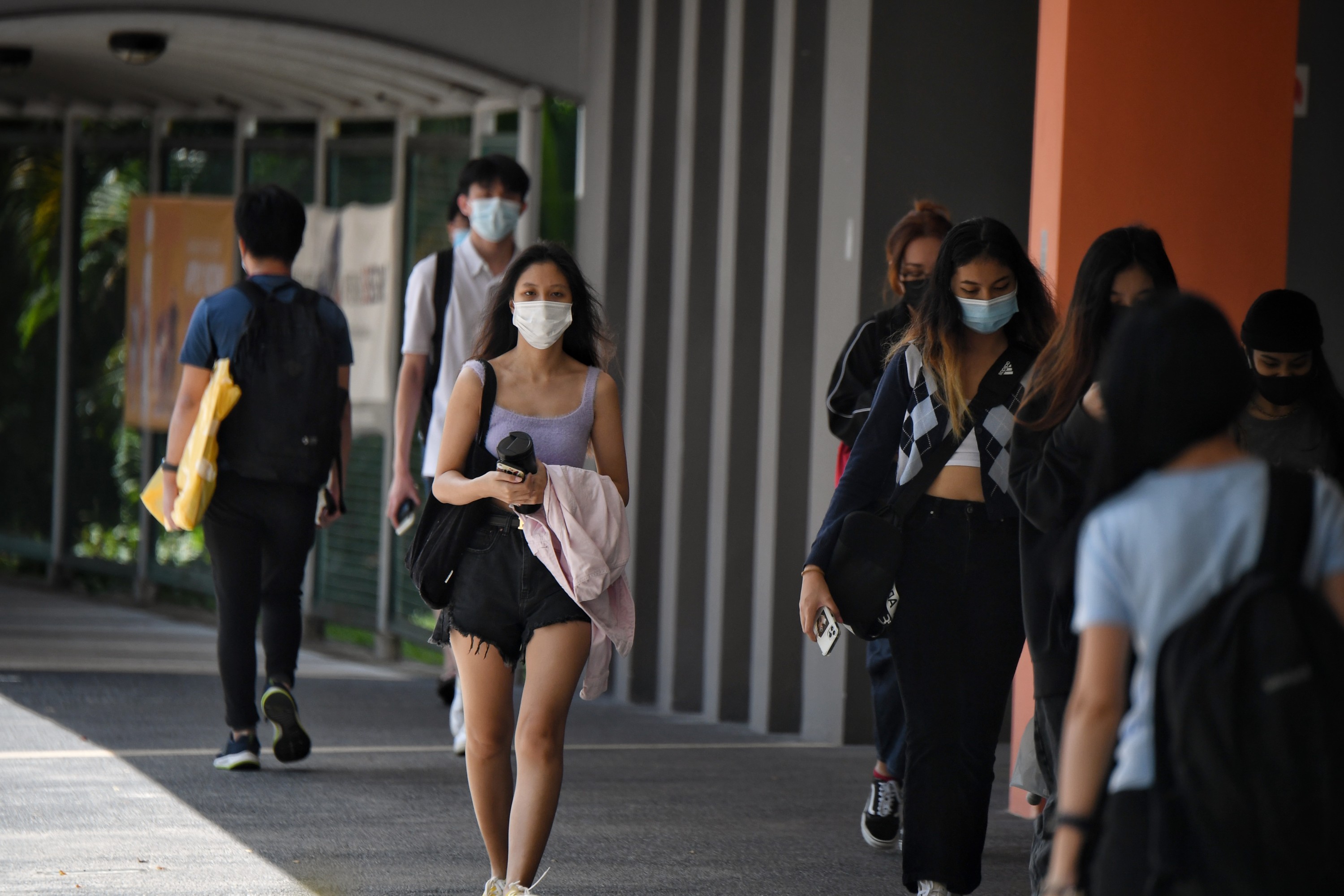More can be done to help Singapore's 'Generation Covid': Desmond Choo
Sign up now: Get ST's newsletters delivered to your inbox

"Generation Covid" loosely refers to those from late childhood to early adulthood who are coming of age during the pandemic.
ST PHOTO: KUA CHEE SIONG
SINGAPORE - More can be done to help younger Singaporeans navigate the changing landscape caused by the Covid-19 pandemic, said National Trades Union Congress (NTUC) assistant secretary-general Desmond Choo.
These Singaporeans are part of Generation Covid - loosely referring to those from late childhood to early adulthood who are coming of age during the pandemic - who face unique challenges, he said during his Budget debate speech in Parliament on Tuesday (March 1).
Some of them find their skills have eroded substantially even before they graduate, he said. "Others are graduating into depressed sectors such as tourism-related industries. Yet others majoring in oil and gas are entering the decarbonisation era. Reskilling and rapid adaptation is the new game."
The Government can consider expanding the reach of SkillsFuture, said Mr Choo, who is also an MP for Tampines GRC.
"The much shorter economic cycles require us to consider lowering the minimum age for SkillsFuture. In addition, we can also increase subsidies for targeted SkillsFuture courses, especially those that support young Singaporeans to explore industries in growth economies," he said.
SkillsFuture Credit enables all eligible Singaporeans aged 25 and above to acquire new skills or improve existing ones.
Many younger Singaporeans may also need a more significant skills upgrade, via a second subsidised diploma or degree, owing to the shifting skills landscape, he added.
"There is merit to such bigger moves because some skills acquisition just cannot be done through micro-courses," said Mr Choo, noting that every Singaporean can currently get one subsidised diploma and/or degree.
There is also greater industry emphasis on soft skills such as career management and interpersonal skills, and some of these are better picked up through the sharing of experiences instead of courses, he said.
Mr Choo noted that mentorship will be especially valuable for younger people from lower- and middle-income families who might not have easy access to mentors unlike their better-off counterparts.
He cited nascent efforts such as the Lit Mentorship initiative by Young NTUC, the labour movement's youth wing, and the WeConnect 2.0 platform by the Mentoring Alliance For Action.
"But for the Singaporean workforce to differentiate itself from competitors, we must see mentorship as a national capability," he said.
Tripartite partners such as NTUC and the Singapore National Employers Federation can also develop national centres of excellence for mentorship because of their deep industry connections, Mr Choo added.
Noting that young workers have often asked about the possibility of a one-stop centre that houses career counselling, mentorship, internships and employment opportunities, he asked if the Government could consider working with tripartite partners to develop such a capability.
"Generation Covid is perhaps the most outspoken, educated and progressive citizenry in the world... They hold different aspirations for Singapore and have a stronger sense of social justice and activism," said Mr Choo, who noted that many have founded mutual aid networks to help the less fortunate.
They are also increasingly seeking to advance such issues not only through their personal lives but also their professional work, he said, adding that NTUC is working towards a deeper understanding of their aspirations and needs.
Mr Choo also highlighted mental health as an issue that people in Generation Covid feel strongly about and said they place more importance on having a balance between work and mental wellness.
Noting there is space for more conversations about mental health, he said: "Key stakeholders, such as employers, must remain sensitive and understanding towards persons struggling with mental health issues."
He added that the labour movement will work closely with its tripartite partners to champion mental health in the workplace. "We can consider establishing a code of practice for WFH (work from home) and increasing peer-to-peer support as an avenue to advance mental wellness."
Mr Choo said: "Generation Covid are the future leaders of Singapore. We need to address their anxieties and worries and, importantly, work with them to fulfil their potential to the fullest."


